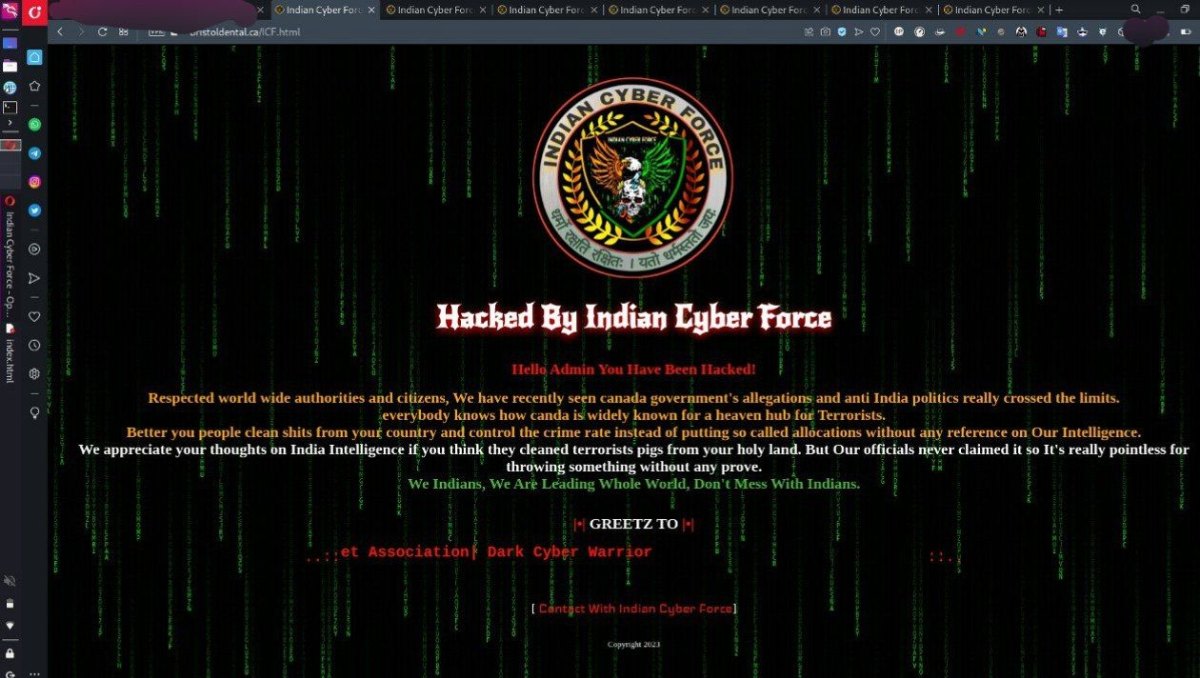Share this article on:
Powered by MOMENTUMMEDIA
Breaking news and updates daily.
Websites belonging to the Canadian government and armed forces were disrupted by a group calling itself the “Indian Cyber Force” amid simmering tensions between the two nations.

A group calling itself the “Indian Cyber Force” has claimed responsibility for attacks that took down Canadian government and military websites in late September.
During the attack, a website belonging to the Canadian Armed Forces became unavailable to users for a handful of hours. The Canadian government has pointed the finger at a distributed denial-of-service attack for taking the website down.
The attackers also took aim at Elections and Democracy, a website belonging to Elections Canada that delivers information on federal elections to citizens.
Defence Minister Bill Blair downplayed the impact of the attacks on the Canadian military and government.
“That’s a very common thing that happens, unfortunately, often. But our cyber officials and security officials acted very, very quickly,” Minister Blair said.
“It was a minor inconvenience, and there is further work going on that we will eventually make a determination on.”
The Canadian government has confirmed that the websites are isolated from the government’s broader networks.
“Indian Cyber Force” took to X to confirm the attack as part of its “OpCanada” amid simmering tensions between the two nations.
In the following days since the attack, hackers have continued to post about the Canadian government on social media.
“Canada government is just damaging their image in India by promoting anti India activities by supporting Khalistani terrorists which are disrespecting Indian Flag in Canada. We want to see a good relation between Canada and India in future. #OpCanada has been stopped,” the group posted.
“Indian Cyber Force is an NGO (Non-Governmental Organization) consists group of hackers including different religions. We do not support or involve in any kind of illegal activities. defending our country against any cyber attacks. We don’t work under any government.”
In September, Canadian Prime Minister Justin Trudeau outlined allegations that the Indian government had been involved in the murder of Hardeep Singh Nijjar in Canada.
“Over the past number of weeks, Canadian security agencies have been actively pursuing credible allegations of a potential link between agents of the government of India and the killing of a Canadian citizen, Hardeep Singh Nijjar,” PM Trudeau said.
Following the speech, the government of Canada expelled one of India’s top diplomats.

Liam Garman is the managing editor of professional services, real estate and security at Momentum Media. He began his career as a speech writer at New South Wales Parliament before working for world leading campaigns and research agencies in Sydney and Auckland. Throughout his career, Liam has managed and executed international media campaigns spanning politics, business, industrial relations and infrastructure. He’s since shifted his attention to writing on politics and business, and holds a Bachelor of Commerce from the University of Sydney and a Masters from UNSW Canberra with a thesis on postmodernism and media ecology.
Be the first to hear the latest developments in the cyber industry.